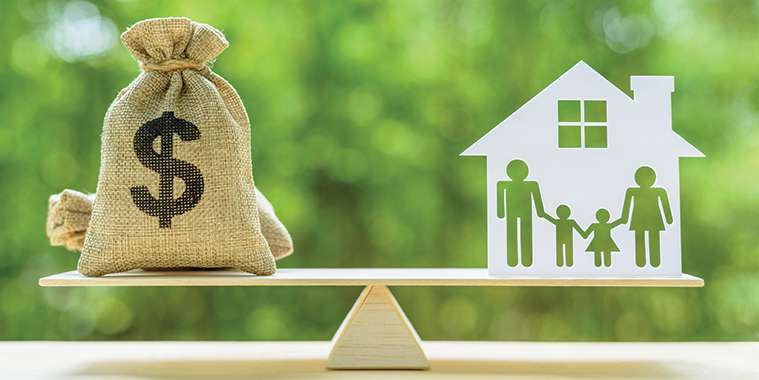From staggeringly low sales numbers in the spring of 2020, to a breakneck summer recovery, Canada’s real estate market has felt like a roller coaster ride as a result of the COVID-19 pandemic.
In response to broader economic turmoil and uncertainty in the early days of the pandemic, Canada’s central bank cut its mortgage-market influencing key interest rate to the lowest level it says is possible. Many economists watching the central bank closely say these low rates will be here for a long time.
As of January 2021, the Bank of Canada’s five-year benchmark mortgage rate sits at 4.79%. Now, mortgage rates stand at their lowest point in recent history. For current and aspiring mortgage holders, the gradual drop is one of the latest changes that has expanded buying power and increased housing affordability.
“It’s a wonderful time to be a borrower and to either be a first-time home buyer and require a mortgage, or someone who currently has a mortgage or who’s mortgage is up for renewal,” said Justin Thouin, co-founder and CEO of LowestRates last fall. “Both fixed and variable rates are as low as we can ever remember.”
Whether you’re looking to obtain your first mortgage, or make changes to your existing one because of these low rates, there’s a lot to unpack before you commit. Thouin, along with mortgage broker and owner of Platform Mortgage, Renée Stribbell, break down what Canada’s low mortgage rates mean for current and future homeowners.
What historically low rates mean for new home buyers
If you’re looking to purchase your first home, today’s low mortgage rates can add a valuable discount.
Thanks to the drop in the mortgage stress test qualifying rate — now 4.79% — buyer purchasing power has increased a little bit, by about $3,000 to $4,000 or so, Stribble explains. For a first-time home buyer, a few thousand dollars might not make a huge difference, but it can definitely help. However, Stribble says the real cost-savings lie in regular mortgage payments.
Stribble uses the example of a $400,000 mortgage with an amortization period of 25 years.
At a rate of 2.79%, monthly payments would have cost about $1,850. However, with a new rate of 1.84% before offered by some lenders, the same mortgage payment would drop to around $1,663, saving the homeowner about $187 per month with a less than one percentage point drop in rates.
Both Thouin and Stribble have noticed a drastic uptick in clients wanting to seize the opportunity to lock in lower rates — cheaper mortgages, pent-up demand from the spring and a fear of missing out are all contributing to the rush of home buyers during the pandemic.
“There’s still reasonable prices and because the rates are so low, that same house on a monthly basis is costing them less money so people are absolutely taking advantage of it right now,” says Stribble.
Despite the benefits lower mortgage rates can provide in helping more Canadians get into the housing market, Thouin cautions buyers shouldn’t use these savings to take on more debt than they can afford. He says these low rates could be with us for some time, possibly for the next two to three years, so there’s no need to rush into making a home purchase.
“I don’t think that these low rates are enough of a game changer that everybody and their neighbour should be going and buying a home,” says Thouin. “In many cases, the best financial decision is to rent and to take some of your other money and put it into the market, into a tax-free savings account or an RRSP.”
What historically low rates mean for current mortgage holders
For those who are already settled into a mortgage, breaking your current term or changing mortgage providers completely for a lower rate may be a tempting proposition.
Both Thouin and Stribble say it may be worth having a conversation with your mortgage broker or bank to determine if a switch is right for you. Your mortgage professional can use calculators and rate comparables to decide if the penalties incurred by breaking your current mortgage agreement will be worth it in the long term, as well as provide information on your up-to-date mortgage balance.
“It’s worth the conversation,” says Stribble. “Will it be worth it to do? It’s really best to have that individual conversation with each person.”
Stribble explains there are a few key elements to consider when exploring the idea of leaving your mortgage term for a lower rate. For starters, breaking your mortgage comes with a penalty. If the penalty is significant, Stribble says you’ll want to make sure you have money set aside to pay that fee, as it’s not always factored into the mortgage. Occasionally, for clients who have renewed early, the payout penalty from the lender may be halved.
If you’re looking to swap lenders or renew early, Stribble also says there will be a qualification process, which will examine your credit, income and employment. If you decided to defer your mortgage payments because of COVID-19, your credit history should not be affected, explains Stribble, but lenders typically want to see the mortgage back on repayment.
— Realtor.ca



